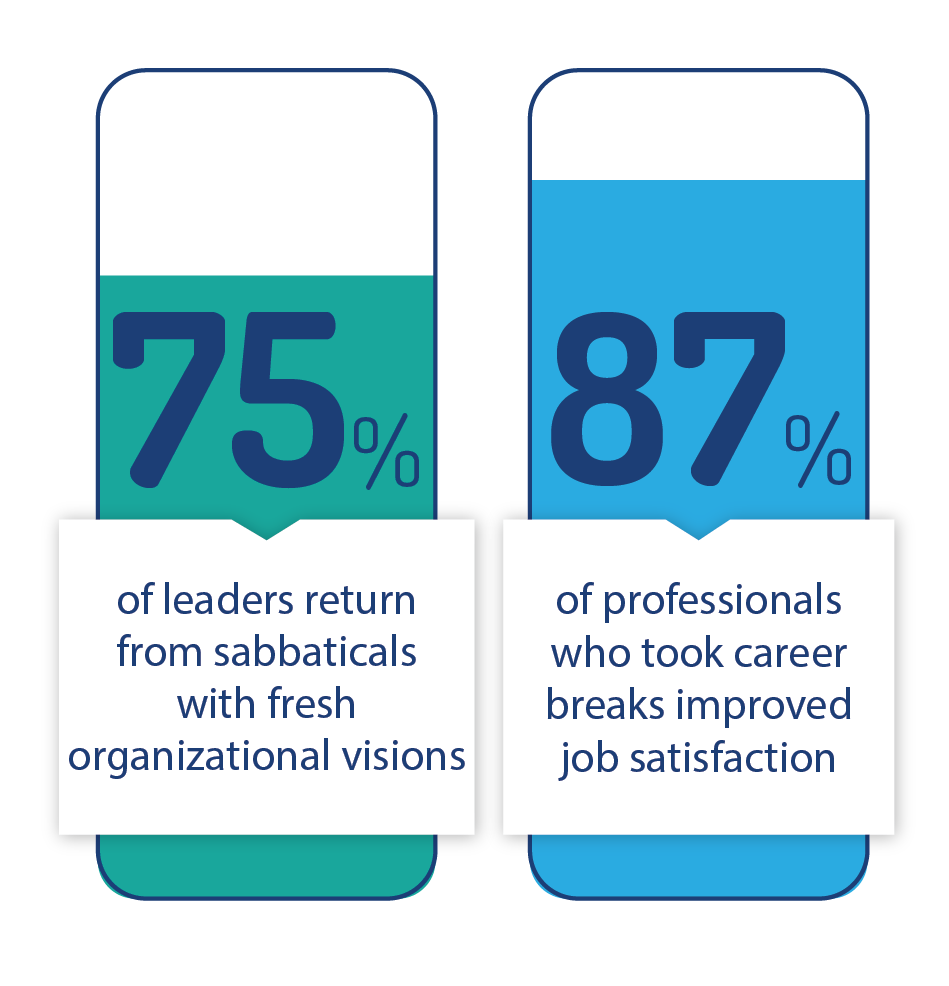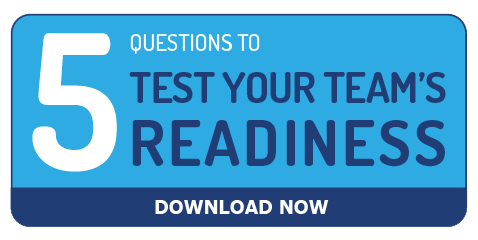By Ted Powell – October 2025
“I’ve been working for 30-years straight, and I want a break!”
A senior executive shared this with me during a meeting to explore how we could support his development and that of his team. We began discussing the increasingly recognized benefits of taking a sabbatical — not as an escape, but as a catalyst for renewal and reflection.
Research highlights that sabbaticals can lead to:
- Reenergized commitment to the job
- Enhanced creativity through what psychologists call “counterfactual thinking”, or imagining alternatives to how things really are
- Improved mental and physical health
His enthusiasm grew with every minute of the conversation — until it didn’t.
A heavy feeling set in.
He got quiet.
His excitement vanished.
And in a despondent tone, he said, “our company is committed to a challenging growth goal. It is not a good time to go offline. There is no way my team can deliver on this commitment without my leadership”.
When Leadership Becomes Dependence
I almost agreed, it was a valid concern. But then I caught myself. What if the belief that “the team can’t succeed without me” was the very thing holding them back?
Ken Blanchard once said:
“Leadership is not just what happens when you’re there, it’s what happens when you are not.”
That quote can reframe everything. Our conversation shifted from “why not” to “what if”. What if he could take a sabbatical with all the renewal, creativity, and health benefits it promised? And more importantly, why not?
As we unpacked that question, a realization surfaced: he had been carrying too much of the company’s transformation on his own shoulders. The drive and energy fueling the changes were his and not yet the team’s. Without him, the momentum would likely stall.
In that moment, I saw that he was right. It truly wasn’t time for him to step away. But the conversation also made something else clear: now we knew what needed to happen to make it possible in the future.
He needed to intentionally develop his team so they could thrive in his absence.
Building a Team That Can Lead Without You
We designed an intensive three-month plan built around two commitments:
- Helping the team step up through honest, often uncomfortable discussions about ownership, accountability, and collaboration.
- Helping him step out by deliberately stepping back from decisions and responsibilities others needed to own.

The plan wasn’t about making his sabbatical possible immediately; it was about making it inevitable when the time was right. The goal was a team capable of sustaining performance and growth even when the leader steps away.
What Would Happen if You Took a Sabbatical?
Not every organization or individual has the financial or operational flexibility to support a 6-month sabbatical. But the question itself is powerful and universally relevant. Even if you never intend to take one, this thought experiment reveals how you team functions or falters in your absence. It highlights whether your leadership has been successfully transferred to others, or remains dependent on your direct involvement.
To help you explore this for yourself, we’ve prepared five reflection questions to test your team’s readiness. Take time to consider each one. Notice where you feel confident and where you hesitate. While you might not be planning a sabbatical anytime soon, simply preparing your team to thrive without you may lead to greater effectiveness, stronger engagement, and a healthier work-life balance.
The ultimate goal isn’t just taking time off. It’s building a team and culture that perform powerfully in your absence.
Leaders who consciously “step out so others can step up” often discover that what they gain isn’t just time — it’s trust, balance, and a renewed sense of purpose.
So, ask yourself:
If you stepped away for six months, would your leadership end… or multiply?

